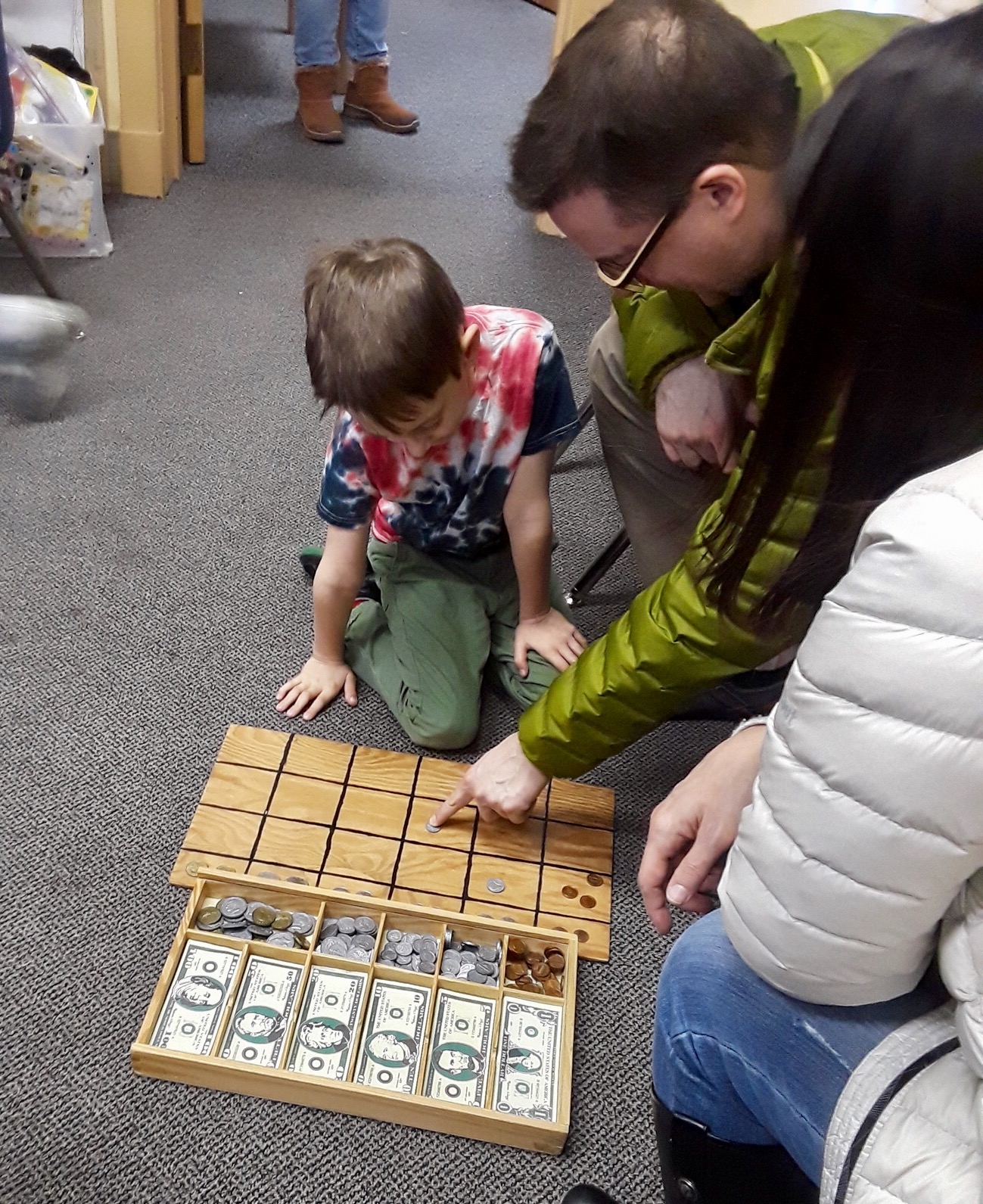Allowance: Should We or Shouldn’t We?

One of the most controversial words in the world of parenting is allowance. It ranks nearly as high on the list of provocative discussion starters as screen time. Many parents, firmly in the pro-allowance camp, believe that allowance is one of the best ways to help children equate work with the earning of money. On the opposite side of the issue, there are those parents in the anti-allowance camp, who believe that chores are part of a family’s life and should not be tied to an external reward.
So how do you make a choice about whether or not to give your child an allowance?
That is actually easier than it may seem. Ultimately all family decisions come down to values. If you step back from any system you plan to put into place, you can ask yourself what about this is in line with our values as a family? Or what family values will this decision help our children learn and/or practice?
So revisiting the question of allowance, the first step is to determine the goal. Are you
1) trying to encourage more help around the house
2) trying to teach children patience and self-control in saving and budgeting money
3) trying to equate work with the earning of money
After you have considered your potential goal for giving an allowance, I would ask you to consider one further question- Is allowance the best tool to accomplish any of these goals?
Experts say nearly unanimously that it is not. Allowance and chores should be treated separately.
Allowance and Financial Literacy
In his book, The Opposite of Spoiled, author and financial education expert, Ron Leiber says, “When parents tie allowance to the completion of chores, they make work the primary focus, not money.” He goes on further to explain how his children are given a set amount each week that is then divided into amounts to save, to spend and to give away in separate containers.
If financial literacy is your goal, take advantage of daily activities to discuss money and spending. A trip to the grocery store is a wonderful start. When developmentally appropriate, give your child a list of five to eight items and a $20 bill as you walk into the grocery store. Make sure they get everything on the list and then if there is any money left over they can choose something to purchase, as long as the total stays under $20. If you decide to try this activity keep in mind whether or not your child will be able to add and retain the amounts in their head or if they will need the support of a pencil and paper to be successful.
Parents can also share family budgeting information with children. Talk openly with children about income and expenses and how economic decisions are made in your family in conjunction with your values. Financial discussions in the home between parents and children have a significant influence over children’s attitudes regarding spending and saving.
Chores and Contributing to the Household
If sharing the household work is the goal to be met there are a lot of reasons to proceed. Many long term benefits have been identified for children who are responsible for tasks at home. Being part of household chores helps children to develop an awareness of the needs of others, while at the same time contributing to their emotional well being. Children also feel a sense of obligation and connectedness to their parents when they work together toward a common goal.
Chores also teach children life skills and balance.
One of the best ways to encourage chores at home is to start early. Toddlers love to watch and help during household work. Encourage their participation, understanding that their execution may not be perfect, but the seeds of contribution and interest have been planted. Keep in mind what Dr. Montessori recommends in these situations, “The most important is to respect all the reasonable forms of activity in which the child engages and try to understand them.”
Some other things to keep in mind to help children be more successful with chores:
- When children are observing or trying to learn from the parent, slow down what you are doing
- Have child-sized tools available
- Change parental mindset to assume that the child is trying to contribute, not trying to play or make a mess
- Remember that the focus should not be the chore, the focus should be teaching the child to be a contributing member of a family
Dr. Maria Montessori had quite a bit to say about the contributions of children in the household. In her book, The Child in the Family, she writes,
“We must give the child an environment that he can utilize himself: a little washstand of
his own, some small chairs, a bureau with drawers he can open, objects of common use that he can operate, a small bed in which he can sleep at night under an attractive blanket he can fold and spread himself. We must give him an environment in which he can live and play; then we will see him work all day with his hands and wait impatiently to undress by himself and lay himself down in his own bed. He will dust the furniture, put it in order, take care to eat well, dress by himself, be gracious and tranquil, without tears, without tantrums, without naughtiness- affectionate and obedient.”
So though allowance and chores are both important tools for imparting family values they must be considered carefully and instituted consistently. Like all things when raising children it must be considered that not every parenting tool is the right fit for every family and that parents know their children best and are in the best position to determine their family’s values and how to impart them.



